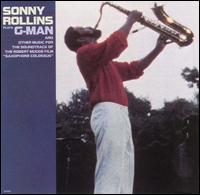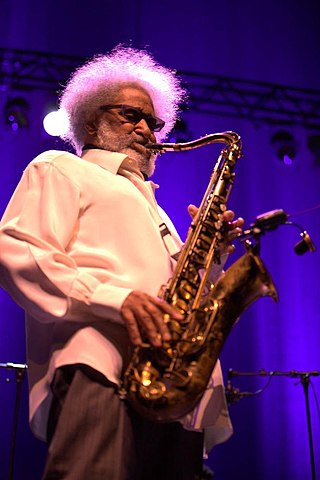
Walter Theodore "Sonny" Rollins is an American jazz tenor saxophonist who is widely recognized as one of the most important and influential jazz musicians. In a seven-decade career, he has recorded over sixty albums as a leader. A number of his compositions, including "St. Thomas", "Oleo", "Doxy", and "Airegin", have become jazz standards. Rollins has been called "the greatest living improviser".

Robert Thomas Christgau is an American music journalist and essayist. Among the most well-known and influential music critics, he began his career in the late 1960s as one of the earliest professional rock critics and later became an early proponent of musical movements such as hip hop, riot grrrl, and the import of African popular music in the West. Christgau spent 37 years as the chief music critic and senior editor for The Village Voice, during which time he created and oversaw the annual Pazz & Jop critics poll. He has also covered popular music for Esquire, Creem, Newsday, Playboy, Rolling Stone, Billboard, NPR, Blender, and MSN Music, and was a visiting arts teacher at New York University. CNN senior writer Jamie Allen has called Christgau "the E. F. Hutton of the music world – when he talks, people listen."

In All Languages is a 1987 double album by Ornette Coleman. Coleman and the other members of his 1950s quartet, trumpeter Don Cherry, bassist Charlie Haden, and drummer Billy Higgins, performed on one of the two records, while his electrified ensemble, Prime Time, performed on the other. Many of the songs on In All Languages had two renditions, one by each group.

Ask the Ages is the final album recorded by jazz guitarist Sonny Sharrock during his lifetime. It was recorded with producer Bill Laswell and released in 1991; It featured Sharrock alongside saxophonist Pharoah Sanders, bassist Charnett Moffett and drummer Elvin Jones. Sharrock died on May 25, 1994.
Marvin "Smitty" Smith is an American jazz drummer and composer.

Circle in the Round is a 1979 compilation album by jazz musician Miles Davis. It compiled outtakes from sessions across fifteen years of Davis's career that, with one exception, had been previously unreleased. All of its tracks have since been made available on album reissues and posthumous box sets.

Shakill's Warrior is an album by David Murray released on the DIW/Columbia label in 1991. It features eight quartet performances by Murray with Stanley Franks, Don Pullen, and Andrew Cyrille.

Here's to the People is an album by jazz saxophonist Sonny Rollins, released on the Milestone label in 1991, featuring performances by Rollins with Clifton Anderson, Mark Soskin, Jerome Harris, Bob Cranshaw, Roy Hargrove, Jack DeJohnette, Steve Jordan, and Al Foster.

Falling in Love with Jazz is an album by jazz saxophonist Sonny Rollins, released on the Milestone label in 1989, featuring performances by Rollins with Clifton Anderson, Bob Cranshaw, Mark Soskin, Jerome Harris and Jack DeJohnette with Branford Marsalis, Tommy Flanagan and Jeff Watts standing in on two tracks. The cover artwork was by Henri Matisse.
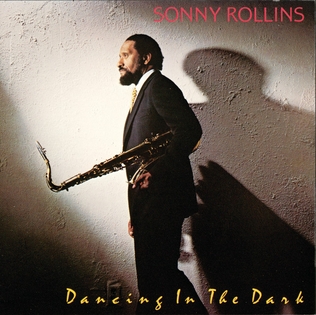
Dancing in the Dark is an album by jazz saxophonist Sonny Rollins, released on the Milestone label in 1987, featuring performances by Rollins with Clifton Anderson, Mark Soskin, Jerome Harris and Marvin "Smitty" Smith.

Sunny Days, Starry Nights is an album by jazz saxophonist Sonny Rollins, released on the Milestone label in 1984, featuring performances by Rollins with Clifton Anderson, Mark Soskin, Russell Blake and Tommy Campbell.

Reel Life is an album by jazz saxophonist Sonny Rollins, released on the Milestone label in 1982, featuring performances by Rollins with Bobby Broom, Yoshiaki Masuo, Bob Cranshaw and Jack DeJohnette.

No Problem is an album by jazz saxophonist Sonny Rollins, recorded for the Milestone label in 1981, featuring performances by Rollins with Bobby Broom, Bobby Hutcherson, Bob Cranshaw and Tony Williams.

Don't Stop the Carnival is a live album by jazz saxophonist Sonny Rollins, recorded at the Great American Music Hall and released on the Milestone label in 1978, featuring performances by Rollins with Mark Soskin, Aurell Ray, Jerome Harris and Tony Williams with Donald Byrd joining on five tracks.

Nucleus is an album by jazz saxophonist Sonny Rollins, released on the Milestone label in 1975, featuring performances by Rollins with George Duke, Raul de Souza, Bennie Maupin, Chuck Rainey, Eddie Moore, Mtume, Bob Cranshaw and Roy McCurdy. It was recorded at Fantasy Studios, Berkeley, CA, on September 2–5, 1975.

The Cutting Edge is a live album by jazz saxophonist Sonny Rollins, recorded at the Montreux Jazz Festival and released on the Milestone label in 1974, featuring performances by Rollins with Stanley Cowell, Yoshiaki Masuo, Bob Cranshaw, David Lee and Mtume with Rufus Harley joining on one track.
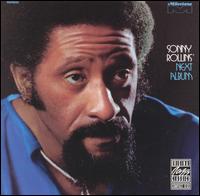
Next Album is an album by jazz saxophonist Sonny Rollins, his first to be released on the Milestone label, featuring performances by Rollins with George Cables, Jack DeJohnette, Bob Cranshaw and Arthur Jenkins. The cover photography was credited to Chuck Stewart.
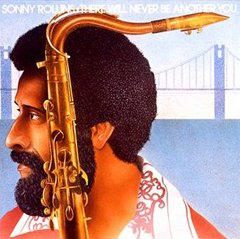
There Will Never Be Another You is a live album by jazz saxophonist Sonny Rollins, recorded at the Museum of Modern Art in New York City on June 17, 1965, and released on the Impulse! label in 1978, featuring a performance by Rollins with Tommy Flanagan, Bob Cranshaw, Billy Higgins and Mickey Roker.
Mark Samuel Soskin is an American jazz pianist based in New York City.

Seize the Rainbow is an album by American jazz guitarist Sonny Sharrock which was recorded in 1987 and released on the Enemy label.
